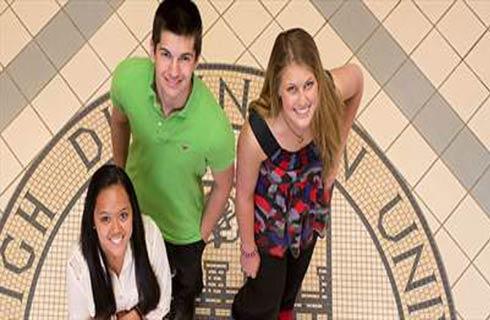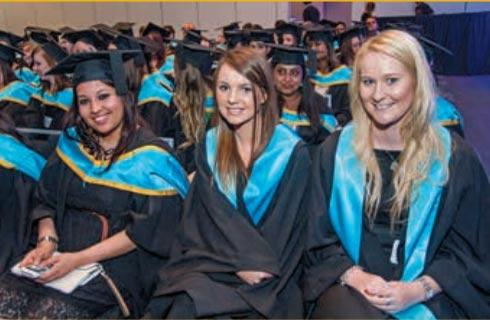理学硕士-神经科学
Master of Science - Neuroscience

学历文凭
Masters Degree (Research)

专业院系
Division of Sciences

开学时间

课程时长

课程学费

国际学生入学条件
Admission to the programme shall be subject to the approval of the Pro-Vice-Chancellor (Sciences).
Every applicant must either
- be a graduate with an average grade of at least B for the appropriate 300-level papers, or
- have alternative qualifications or experience acceptable to the Pro-Vice-Chancellor (Sciences).
An applicant seeking admission to the thesis-only option of the programme (see regulation 2(c) below) on the basis of the degree of Bachelor of Science with Honours or the Postgraduate Diploma in Science or equivalent must have achieved a grade of at least B+ for the research report, thesis preparation, or dissertation requirement of the qualification concerned.
In considering an applicant's qualifications, regard will be had to the detail of the course of study followed to gain the qualification, as well as the applicant's performance in the programme.
English language requirements
IDP—雅思考试联合主办方

雅思考试总分
6.5
- 雅思总分:6.5
- 托福网考总分:90
- 托福笔试总分:160
- 其他语言考试:Pearson Test of English (PTE) Academic - Overall score of 58 with no communicative skills score below 50.
CRICOS代码: OO0022
申请截止日期: 请与IDP联系 以获取详细信息。
课程简介
The University of Otago is the only New Zealand university to offer an undergraduate degree in Neuroscience. Neuroscientists apply a wide range of scientific disciplines, including Anatomy, Biochemistry, Computer Science, Pharmacology, Physiology, Psychology, and Zoology. As an interdisciplinary programme, Neuroscience is taught by staff from varied departments across the University. Each teaches a separate “neuro” component, resulting in a coherent and integrated subject. Neuroscientists are its explorers. They try to understand how the brain functions, how it deals with injury or damage, and how it develops and changes over time. What they find helps neurologists, psychiatrists and clinical psychologists – and provides important models for high-level information processing and robotics. Knowing how the brain perceives stimuli and controls movement helps those working on human performance, from sports science to space medicine.A candidate achieving the degree by papers and a thesis shall normally follow a programme for the equivalent of not less than two years of full-time study and not more than three years of full-time study, and a candidate achieving the degree by thesis alone shall normally follow a programme of study for the equivalent of not less than one year of full-time study and not more than two years of full-time study. Exceptions shall be permitted only with the approval of the Pro-Vice-Chancellor (Sciences).
相关申请
 预科
预科 奖学金
奖学金 实习机会
实习机会 在校学习
在校学习 跨境学习
跨境学习 校园授课-线上开始
校园授课-线上开始 在线/远程学习
在线/远程学习
开学时间&学费
学费信息仅供参考,请与IDP联系以获取详细信息
| 开学时间 | 时长 | 学费 | 地点 |
|---|
学校排名

世界排名201
数据源:
泰晤士高等教育世界大学排名
关于奥塔哥大学

成立于1869年的奥塔哥大学是新西兰第一所大学,拥有丰富而杰出的历史。奥塔哥大学在研究和教学方面享誉世界,在QS世界大学排名中位列全球前1%。奥塔哥大学在商业、健康科学和人文科学等领域提供了大量而多样化的学习选项。学生可以从200多门课程中选择。该大学在就业能力、国际化、教学和研究等方面均被QS评为五星。根据高等教育委员会(TEC)的教育表现指标,奥塔哥大学在学生表现和留存率方面也被评为新西兰第一。这强调了奥塔哥为学生提供的教育质量。该机构在新西兰各地都有校区,在达尼丁、惠灵顿、奥克兰、基督城和因弗卡吉尔都有校区。奥塔哥大学的学生群体也是多元化的,达尼丁校区85%以上的学生来自城市以外,全校有3000名国际学生入学。奥塔哥大学的学生享有良好的毕业成果,95%的学生在毕业后继续深造或就业。
本校相关课程
其他相关课程

理学学士(荣誉)生物医学
 德蒙福特大学
德蒙福特大学泰晤士高等教育世界大学排名:639
学历文凭
Bachelor Degree with Honours
开学日期
课程费用总额


理学硕士-分子和细胞生物学(研究)
 怀卡托大学
怀卡托大学学历文凭
Masters Degree (Research)
开学日期
课程费用总额


生物医学硕士
 奥克兰大学
奥克兰大学学历文凭
Masters Degree (Research)
开学日期
课程费用总额


MRes Cancer Biology
 诺丁汉特伦特大学
诺丁汉特伦特大学泰晤士高等教育世界大学排名:696
学历文凭
Masters Degree (Research)
开学日期
课程费用总额


理学学士(荣誉)生物医学
 布里斯托大学
布里斯托大学泰晤士高等教育世界大学排名:81
学历文凭
Bachelor Degree with Honours
开学日期
课程费用总额


PhD in Immunological and Cellular Strategies in Metabolic Disease (King's and Technische Universität Dresden)
 伦敦国王学院
伦敦国王学院学历文凭
Ph.D.
开学日期
课程费用总额
















